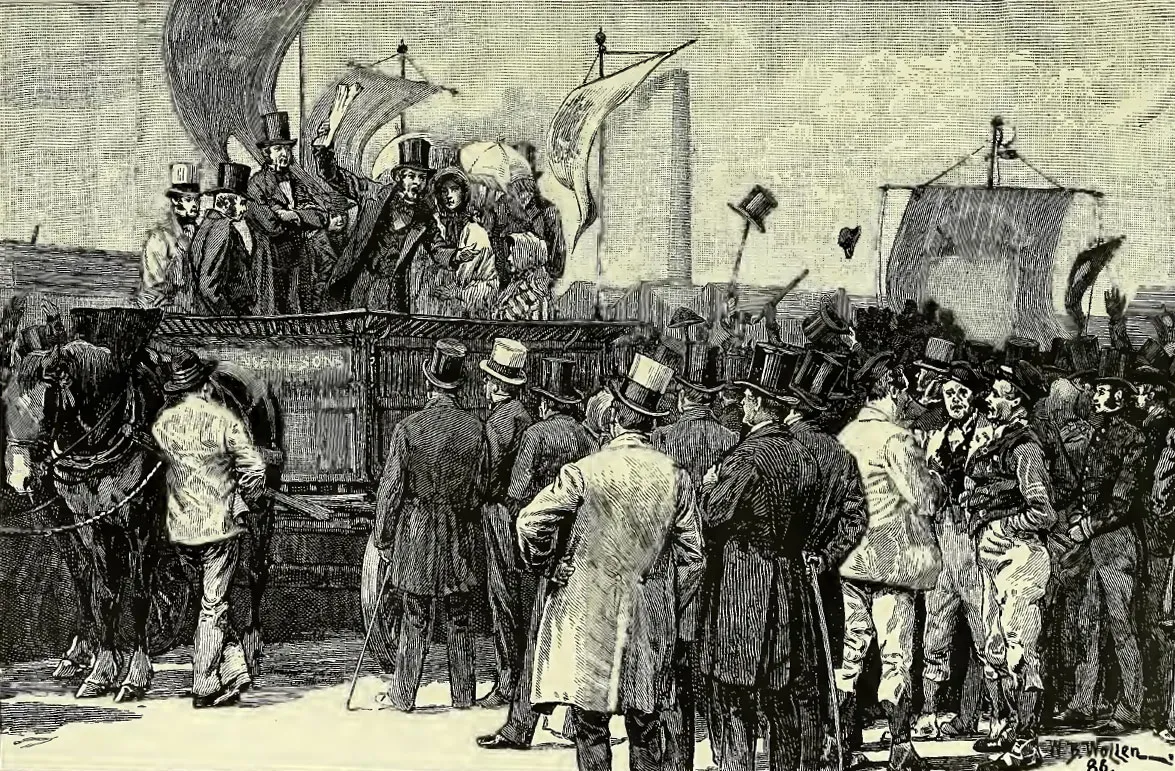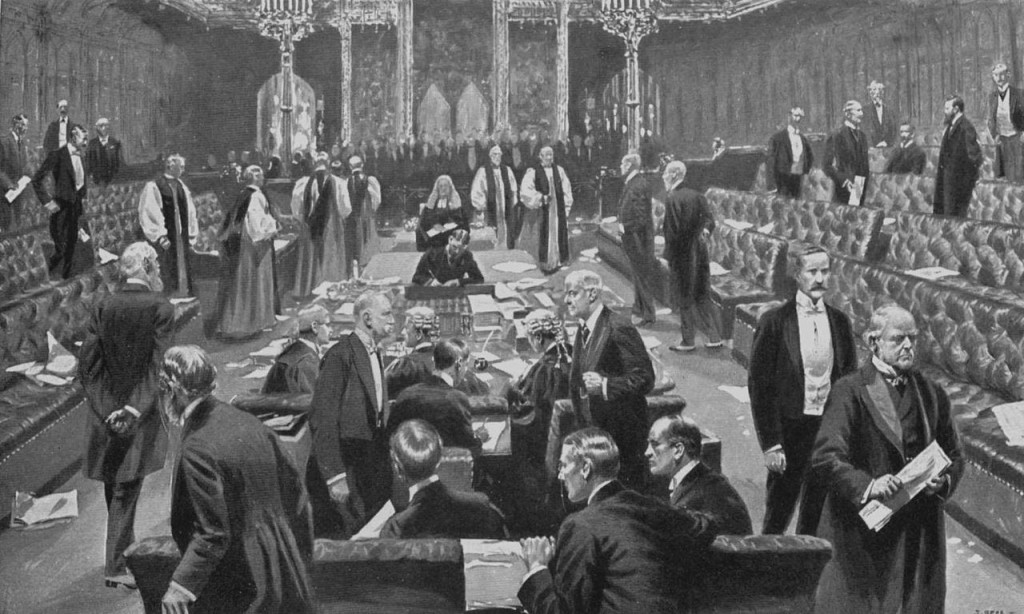Photo AI
Last Updated Sep 26, 2025
The 1885 Election & The Liberal Alliance Simplified Revision Notes for Leaving Cert History
Revision notes with simplified explanations to understand The 1885 Election & The Liberal Alliance quickly and effectively.
236+ students studying
The 1885 Election & The Liberal Alliance
The 1885 general elections were a pivotal moment in British and Irish political history, significantly impacting the future of the United Kingdom and Ireland. Recent reforms shaped these elections, the rise of the Irish Parliamentary Party, and shifting political alliances.
Key Context and Factors
Reform Act of 1884
- This act expanded the electorate by adding about 2.5 million new voters, primarily from the working class.
- This change forced political parties to appeal to a broader demographic, altering the political landscape.
Redistribution Act of 1885
- This act redrew parliamentary constituency boundaries to ensure more equal representation.
- It aimed to create constituencies with roughly equal populations, making the electoral system fairer and more representative.
Irish Question
- The issue of Home Rule for Ireland was a central political concern.
- The Irish Parliamentary Party (IPP), led by Charles Stewart Parnell, campaigned for Irish self-government and gained increasing support and influence.

Election Dynamics
- The 1885 general elections were marked by intense competition and strategic campaigning. The franchise extension and the redistribution of seats meant that parties had to engage with a wider electorate and adapt their strategies accordingly.
- William Gladstone's Liberal Party focused on appealing to the newly enfranchised voters with promises of reform, including the possibility of Home Rule for Ireland.
- Lord Salisbury's Conservative Party aimed to maintain the status quo and appeal to traditional voters, emphasising stability and opposition to radical changes.
Election Results
- The election results led to a hung parliament, with no single party holding a clear majority.
- The Liberal Party, led by Gladstone, won 335 seats, making them the largest party in the House of Commons but falling short of an outright majority.
- The Conservative Party, led by Salisbury, secured 249 seats.
- Under Parnell's leadership, the Irish Parliamentary Party won 86 seats, positioning it as the key player who could tip the balance of power.
The Impact on Politics
- The results created a scenario where the IPP held the balance of power. Both the Liberals and Conservatives needed the support of the Irish MPs to form a government.
- This gave Parnell significant leverage to advance his goal of Home Rule for Ireland.
The Liberal Alliance
- The Liberal Alliance refers to the strategic cooperation between the Liberal Party and the Irish Parliamentary Party following the 1885 general elections.
- This alliance was crucial because the hung parliament required a coalition to govern effectively.
Key Points of the Alliance
- Home Rule Support: The IPP's support was contingent on the Liberal Party's commitment to Home Rule for Ireland. Gladstone, a proponent of Irish reforms, agreed to this demand.
- Strategic Cooperation: The alliance allowed the Liberals to form a government with the support of the Irish MPs. In return, the IPP gained a stronger platform to advocate for Irish self-government.
Importance of the Alliance
- The alliance underscored the growing political influence of the Irish Parliamentary Party. Parnell's ability to sway British politics highlighted the significance of the Irish Question.
- In 1886, Gladstone introduced the first Home Rule Bill as part of the agreement with the IPP. Although the bill was ultimately defeated, it was a landmark in the campaign for Irish self-government.
- The alliance and the Home Rule Bill caused splits within the Liberal Party. Some members, known as Liberal Unionists, opposed Home Rule and eventually joined the Conservatives. This realignment had lasting effects on British politics.

- The alliance and the Home Rule Bill caused splits within the Liberal Party. Some members, known as Liberal Unionists, opposed Home Rule and eventually joined the Conservatives. This realignment had lasting effects on British politics.
The 1885 Elections: Why Do We Care?
- The 1885 general election is of significant historical importance for several reasons, particularly concerning the political dynamics within the United Kingdom and the Irish Home Rule movement.
- One of the primary reasons the 1885 election was crucial is the impact of the Reform Act of 1884. This legislation dramatically expanded the electorate by adding about 2.5 million new voters, primarily from the working class.
- Including these new voters marked a significant shift towards a more democratic and representative electoral system. It forced political parties to adapt their platforms and strategies to appeal to a broader and more diverse group of constituents.
- The Redistribution Act of 1885 also played a key role in the significance of this election. By redrawing parliamentary constituency boundaries to ensure more equal representation, the act aimed to create constituencies with roughly equal populations.
- This adjustment was crucial for addressing previous imbalances and making the electoral process fairer. The changes influenced the strategies of political parties and contributed to a more competitive and dynamic election.
- The 1885 election underscored the growing influence of the Irish Parliamentary Party (IPP), led by Charles Stewart Parnell.
- The IPP's success in winning 86 seats positioned it as a powerful force in British politics. This election marked the first time an Irish nationalist party held the balance of power in the House of Commons, as neither the Liberal Party nor the Conservative Party achieved an outright majority.
- The IPP's pivotal role meant that both major parties had to consider Irish interests seriously, particularly the demand for Home Rule.
- The election results led to a hung parliament, necessitating the formation of alliances. The Liberal Party, led by William Gladstone, sought the support of the IPP to form a government. This strategic alliance was significant as it brought the issue of Home Rule to the forefront of British politics.
- Gladstone's willingness to support Home Rule in exchange for the IPP's backing highlighted the growing importance of Irish political demands and set the stage for future legislative efforts.
- The 1885 election had lasting implications for the political landscape of the United Kingdom. The resulting alliances and divisions, particularly the split within the Liberal Party over Home Rule, reshaped party politics.
- The formation of the Liberal Unionist faction, which opposed Home Rule and eventually aligned with the Conservatives, exemplified the long-term realignment that began with this election.
500K+ Students Use These Powerful Tools to Master The 1885 Election & The Liberal Alliance For their Leaving Cert Exams.
Enhance your understanding with flashcards, quizzes, and exams—designed to help you grasp key concepts, reinforce learning, and master any topic with confidence!
208 flashcards
Flashcards on The 1885 Election & The Liberal Alliance
Revise key concepts with interactive flashcards.
Try History Flashcards22 quizzes
Quizzes on The 1885 Election & The Liberal Alliance
Test your knowledge with fun and engaging quizzes.
Try History Quizzes29 questions
Exam questions on The 1885 Election & The Liberal Alliance
Boost your confidence with real exam questions.
Try History Questions27 exams created
Exam Builder on The 1885 Election & The Liberal Alliance
Create custom exams across topics for better practice!
Try History exam builder117 papers
Past Papers on The 1885 Election & The Liberal Alliance
Practice past papers to reinforce exam experience.
Try History Past PapersOther Revision Notes related to The 1885 Election & The Liberal Alliance you should explore
Discover More Revision Notes Related to The 1885 Election & The Liberal Alliance to Deepen Your Understanding and Improve Your Mastery
96%
114 rated
Case Study: The 1885/86 elections
The First Home Rule Bill 1886 and Opposition to it
221+ studying
200KViews96%
114 rated
Case Study: The 1885/86 elections
The 1886 General Elections and its implications
445+ studying
190KViews